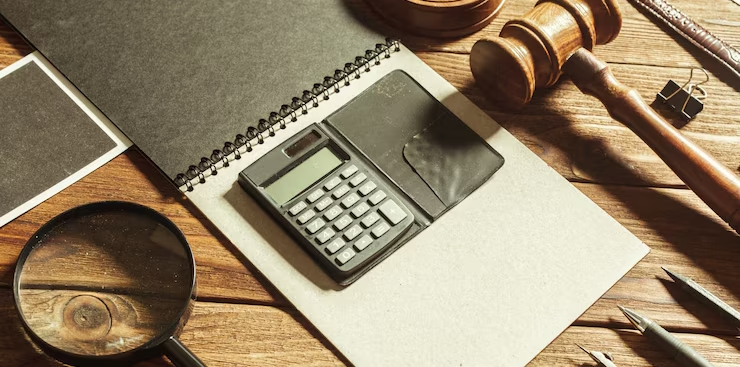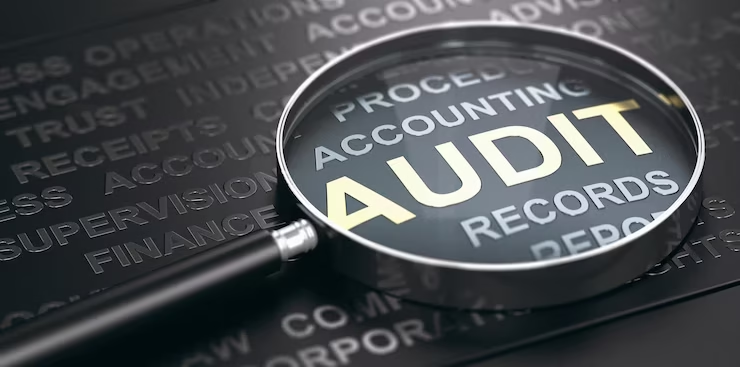In today’s dynamic business environment, protecting your assets and ensuring the integrity of your financial operations is more crucial than ever. Forensic accounting audits have become an essential service for businesses, legal professionals, and individuals who need to verify financial records, detect fraud, and uncover hidden risks. This in-depth guide will take you through the importance of forensic accounting, the services offered, and how it can benefit you in safeguarding your financial future.
What is Forensic Accounting?
Forensic accounting is a specialized branch of accounting that involves the application of accounting skills to investigate financial discrepancies, fraud, and other financial irregularities. Forensic accountants are trained to examine financial data, identify discrepancies, and present their findings in a clear, understandable manner. They often work closely with law enforcement agencies, attorneys, and other professionals to investigate financial crimes and provide expert testimony in legal proceedings.
Unlike traditional accountants who focus on maintaining and analyzing financial statements, forensic accountants are tasked with finding specific issues within the data, such as embezzlement, asset misappropriation, financial fraud, and other illegal activities. This unique skillset makes forensic accountants invaluable when it comes to both preventing and investigating financial crimes.
The Role of Forensic Accountants
Forensic accountants perform a wide range of duties that go beyond basic auditing. Their role is crucial in ensuring financial integrity, identifying fraudulent activities, and helping organizations navigate legal complexities. Some of the primary responsibilities of forensic accountants include:
- Fraud Detection
Forensic accountants are experts at detecting financial fraud. They analyze financial statements, internal records, and transactions to uncover discrepancies that may indicate fraudulent behavior. Common signs of fraud that forensic accountants look for include unexplained changes in financial data, unusual patterns of financial activity, and the concealment of assets.
- Litigation Support
In many cases, forensic accountants provide litigation support to attorneys and legal professionals. They may be called upon to gather evidence, prepare reports, and offer expert testimony in court. Forensic accountants play a vital role in assisting with cases related to financial disputes, divorce settlements, contract breaches, and more.
- Asset Tracing
When assets are hidden, stolen, or misappropriated, forensic accountants use their skills to trace and locate those assets. This process involves investigating financial records, transactions, and other documents to determine the location of missing assets. Asset tracing is often an essential step in recovering funds lost due to fraudulent activities.
- Bankruptcy and Insolvency Investigations
Forensic accountants play a key role in bankruptcy proceedings and insolvency investigations. They analyze financial records to determine the cause of financial distress and identify any potential fraudulent activity that may have contributed to the bankruptcy. This can help creditors recover debts and prevent future financial mismanagement.
- Valuation of Business Interests
In the event of a business dispute, merger, or acquisition, forensic accountants may be called upon to assess the value of a company or its assets. This process involves a detailed analysis of the company’s financial records, operations, and market conditions to determine its fair market value.
The Importance of Forensic Accounting Audits
Forensic accounting audits provide a comprehensive examination of an organization’s financial records, ensuring that everything is accurate and compliant with legal standards. These audits are invaluable for businesses looking to maintain transparency, prevent fraud, and protect their reputation.
Here are several reasons why forensic accounting audits are so crucial:
- Uncover Fraud and Financial Mismanagement
Forensic accounting audits are designed to uncover financial fraud and mismanagement that may not be immediately obvious. Many businesses fall victim to internal or external fraud, and a forensic audit can help identify hidden financial activities, including employee theft, embezzlement, and other forms of misconduct.
- Prevent Financial Fraud
By regularly conducting forensic accounting audits, businesses can deter potential fraudsters from engaging in illegal activities. The knowledge that forensic auditors will be reviewing financial records can make employees and stakeholders think twice before engaging in fraudulent behavior. Additionally, forensic audits can help identify vulnerabilities in a company’s financial systems and provide recommendations for improving internal controls.
- Ensure Compliance with Legal Regulations
Forensic accounting audits also help businesses ensure compliance with various regulatory requirements. Many industries are subject to strict financial reporting standards, and failure to comply can result in significant penalties. A forensic audit can provide a thorough review of financial records to ensure that they are in compliance with accounting principles and legal regulations.
- Aid in Legal and Regulatory Investigations
In the event of legal disputes or regulatory investigations, forensic accounting audits provide crucial evidence that can support or refute claims. Forensic accountants are skilled at presenting financial data in a way that is easy to understand and can withstand scrutiny in court. Their expertise is often sought after in cases involving fraud, embezzlement, shareholder disputes, and more.
- Protect Your Business Reputation
A forensic accounting audit can help businesses maintain their reputation by ensuring that their financial operations are transparent and free from fraud. For companies that rely on investor confidence or have public stakeholders, maintaining a clean financial record is essential to maintaining trust and avoiding reputational damage.
When Should You Consider a Forensic Accounting Audit?
Forensic accounting audits are not just for large corporations or businesses in crisis. Even small and medium-sized enterprises (SMEs) can benefit from these services to enhance financial transparency and protect against potential fraud. Here are some scenarios in which a forensic accounting audit may be necessary:
- Suspected Fraud or Financial Irregularities
If you suspect that fraud or financial irregularities have occurred within your organization, a forensic accounting audit is a crucial step in uncovering the truth. Forensic accountants are skilled at detecting fraud, even when it is well-hidden.
- Legal Disputes
Forensic accounting audits are often necessary during legal disputes, particularly in cases involving financial misconduct or asset disputes. Forensic accountants can provide critical evidence that can support your case in court.
- Mergers and Acquisitions
When companies undergo mergers or acquisitions, forensic accounting audits can help ensure that the financial records of both organizations are accurate and transparent. This can help avoid potential liabilities and ensure that the transaction is fair for all parties involved.
- Bankruptcy or Insolvency
In cases of bankruptcy or insolvency, forensic accounting audits can help identify the causes of financial distress and ensure that assets are properly accounted for. This process is essential for ensuring that creditors are treated fairly and that the company’s assets are used to pay off outstanding debts.
- Internal Control Weaknesses
If your business has experienced issues with internal controls or financial management, a forensic accounting audit can help identify vulnerabilities and recommend improvements. This proactive approach can help prevent future fraud or financial mismanagement.
How Forensic Accounting Audits Can Benefit You
The benefits of forensic accounting audits extend beyond uncovering fraud or financial discrepancies. These audits provide valuable insights that can help improve your financial practices, protect your assets, and ensure the long-term success of your business. Here are some of the key benefits:
- Enhanced Financial Transparency
A forensic accounting audit provides a thorough examination of your financial records, ensuring that everything is accounted for and transparent. This level of transparency is essential for building trust with investors, stakeholders, and customers.
- Improved Internal Controls
Forensic accountants are experts at identifying weaknesses in your internal controls. They can provide recommendations for strengthening your financial systems, reducing the risk of fraud, and improving operational efficiency.
- Recovery of Stolen Assets
In cases of financial fraud, forensic accountants can help recover stolen or misappropriated assets. Through their expertise in asset tracing, they can track down hidden funds and help you recover your losses.
- Peace of Mind
Knowing that your financial records have been thoroughly examined by a forensic accountant gives you peace of mind. You can rest assured that your business is operating with integrity and that any potential issues have been addressed.
Conclusion
Forensic accounting audits are an essential service for businesses of all sizes. They provide a comprehensive review of financial records, help detect fraud, and ensure compliance with legal regulations. Whether you’re dealing with a legal dispute, undergoing a merger or acquisition, or simply want to ensure the integrity of your financial operations, forensic accounting audits can provide the expertise and insights you need.
At Mortgage Audits Online, we offer professional forensic accounting audit services to help businesses safeguard their financial integrity. Whether you’re a business owner looking to protect your assets or a legal professional seeking expert insights, we are here to help. Secure your financial future with confidence!
Contact us today at (877)-399-2995 or visit Mortgage Audits Online to learn more.







